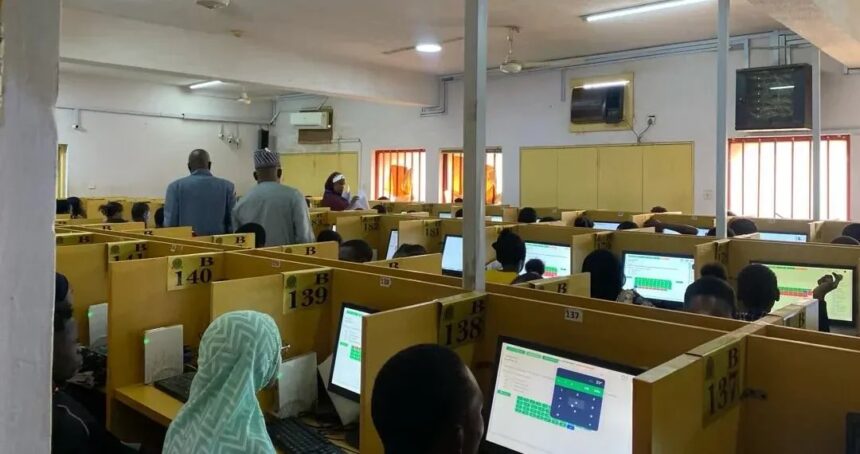The Federal Government of Nigeria has announced a landmark educational policy reform, granting Mathematics exemption for Arts students in secondary school certification required for tertiary admission.
The new directive immediately removes the mandatory ‘C’ grade or better requirement in the General Mathematics examination for Arts candidates applying for Arts and Humanities programs at Nigerian universities.
The announcement was detailed in the “Revised National Guidelines for Entry Requirements into Nigerian Tertiary Institutions.”
The Federal Ministry of Education, explaining the reason for granting Mathematics exemption for Arts students in Nigeria, said the policy is designed to encourage specialization and alleviate unnecessary academic pressure on students whose career paths do not require advanced quantitative skills.
The Ministry, in a press statement issued by its spokesperson, Folasade Boriowo, explained that compulsory mathematics had created a bottleneck, particularly for Arts students specializing in subjects like Literature, History, and Languages.
Meanwhile, as of now, Mathematics is no longer compulsory for Arts students. This means English remains the sole universal anchor for these streams, with five relevant subject credits required in no more than two sittings.
The statement reads in part: “The new national guidelines update admission requirements across universities, polytechnics, colleges of education, and Innovation Enterprise Academies, IEAs, while maintaining academic standards.
“The revised National Guidelines for Entry Requirements into Nigerian Tertiary Institutions are designed to remove barriers while maintaining academic standards.
“The new framework applies to universities, polytechnics, colleges of education, and Innovation Enterprise Academies across the country as follows:
“Universities: Minimum of five (5) credit passes in relevant subjects, including English Language, obtained in not more than two sittings. Mathematics remains compulsory for science, technology, and social science courses but is no longer compulsory for Arts students.
“Polytechnics (ND Level): Minimum of four (4) credit passes in relevant subjects, including English Language for non-science courses and Mathematics for science-related programs.
“Polytechnics (HND Level): Minimum of five (5) credit passes in relevant subjects, including English Language and Mathematics.
“Colleges of Education (NCE Level): Minimum of four (4) credit passes in relevant subjects, with English Language mandatory for Arts and Social Science courses, and Mathematics required for Science, Vocational, and Technical programs.
“Colleges of Education (B.Ed level): Minimum of five (5) credits, including English Language and Mathematics, as applicable to the course of study.
“Innovation Enterprise Academies (IEAs): To adopt the same requirements as Polytechnics for National Diploma (ND) programmes.”
The Minister of Education, Dr Tunji Alausa, speaking on the decision to grant Mathematics exemption for Arts students, described the reform as a deliberate effort to expand access to tertiary education.
The Minister said the government has also approved a comprehensive reform of admission entry requirements into all tertiary institutions across the country, increasing the average annual intake from about 700,000 to one million students.
According to him, the new policy aims to expand access to higher education and create opportunities for an additional 250,000 to 300,000 admissions each year.
The minister explained that the reform became necessary after years of limited access, which left many qualified candidates unable to secure admission despite meeting the required standards.
“Every year, over two million candidates sit for the Unified Tertiary Matriculation Examination (UTME), yet only about 700,000 gain admission. This imbalance is not due to a lack of ability but outdated and overly stringent entry requirements that must give way to fairness and opportunity.
“The reform is a deliberate effort to expand access to tertiary education, creating opportunities for an additional 250,000 to 300,000 students each year. It reflects our commitment to ensuring that every Nigerian youth has a fair chance to learn, grow, and succeed—putting the Renewed Hope Agenda into action,’’ he said.
Speaking on the development, education analyst, Ayodamola Oluwatoyin, praised the Federal Government for granting Mathematics exemption for Arts students.
“This is a brilliant reform, which we hope will open the doors and improve the ease of admissions into tertiary institutions for more seekers.”
Below are some reactions from Nigerians;





